Renewed call by Welsh Tories for hospital death rates inquiry
- Published

A taskforce said the current death rate figures for Wales' NHS were 'too technical'
A renewed call for an inquiry into Welsh hospitals with the highest death rates has been made by the Welsh Conservatives.
The party claims four of the six health boards in Wales which have a major hospital have higher than average mortality rates.
Health Minister Mark Drakeford said changes would be made to the way mortality rates were measured in Wales.
But he rejected the idea of an inquiry into the matter.
It comes after it emerged the medical director of the English NHS suggested persistently high death rates in Welsh hospitals should be investigated.
Sir Bruce Keogh said data on rates in six Welsh hospitals was worrying but not adequate to "form a view".
He called for an inquiry in an email sent in November, released under the Freedom of Information Act.
The Welsh Conservative Party has frequently called for an investigation similar to one conducted by Sir Bruce in England, in the wake of the Mid Staffs scandal inquiry.
Neglect and abuse at Stafford Hospital was said to have contributed to hundreds of unnecessary deaths between 2005 and 2008.
Shadow Health Minister Darren Millar told an assembly debate on Wednesday that he believed there was an "urgent need" to look at mortality rates in Welsh hospitals.
He said public confidence in the NHS "had taken a big knock".
"What is there to hide?" he asked AMs.
"Surely an independent review would be helpful to put things right... this has the whiff of a cover-up," he added.
'Public clarity'
Health Minister Mark Drakeford said an inquiry was unnecessary, arguing the Welsh NHS had adequate systems in place to respond if things went wrong.
But he confirmed the Welsh government would overhaul its mortality rate indicator.
Four new measures will be published at the end of March which aim to give the public greater clarity about how Welsh hospitals are performing.
The calls for an inquiry echo those made by the UK government's Health Secretary Jeremy Hunt, who called for a "proper independent examination of mortality rates" in Wales, during a Westminster debate.
He said failings in the Welsh NHS had led to an increase in pressure on the NHS in England.
Deputy chief medical officer for Wales Dr Chris Jones on the overhaul
"Although health is a devolved issue, unfortunately failures in care in Wales are now having a direct impact on NHS services in England, with a 10% rise since 2010 in the number of Welsh patients using English A&E departments leading to very real additional pressure on border town hospitals," said Mr Hunt. "And what is causing that pressure?
"Dr Dai Samuel of the Welsh BMA describes standards of care in Wales as follows, he says 'it's pretty horrific, the level of care being given to patients is compromised, sub-standard - we are seeing a miniature Mid Staffs every day'.
"Both NHS England medical director, Professor Sir Bruce Keogh, and president of the Royal College of Surgeons, Professor Norman Williams, have written to the Welsh authorities calling for action only to be completely ignored."
In response, a spokesman for Mr Drakeford said: "Jeremy Hunt was today responding to a debate following an unprecedented scandal that occurred in the English NHS.
"The fact that he wants to drag the Welsh NHS into that debate is shameful."
Both debates come as a Welsh government taskforce, led by Wales' deputy chief medical officer, Dr Chris Jones, recommended a change in the way death rates were measured in the Welsh NHS.
Dr Jones said the aim would be to develop measures which would make it easier to compare hospital performance in specific areas, such as in stroke or cardiac care.
He said current mortality indicators, which give a single score to an entire hospital, were not a helpful measure of the quality of a complex hospital.
'Fire alarm'
Currently Wales uses a mortality indicator known as RAMI - which gives each hospital a score.
It aims to show whether that hospital has a higher or lower death rate than that which would normally be expected in a hospital of a similar size and type.
A score of 100 is considered normal, but officials say higher numbers could indicate cause for concern - what has been described as a "fire alarm".
In recent years there has been an improvement in RAMI scores across Wales - but there continues to be big differences between certain hospitals.
The English NHS uses a different indicator, making it almost impossible to accurately compare death rates between the two countries.
- Published20 February 2014

- Published20 February 2014
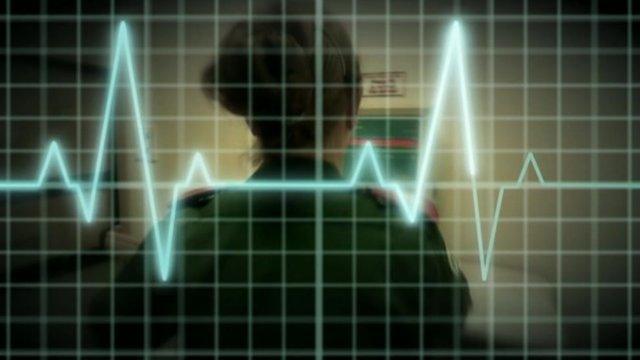
- Published21 March 2013
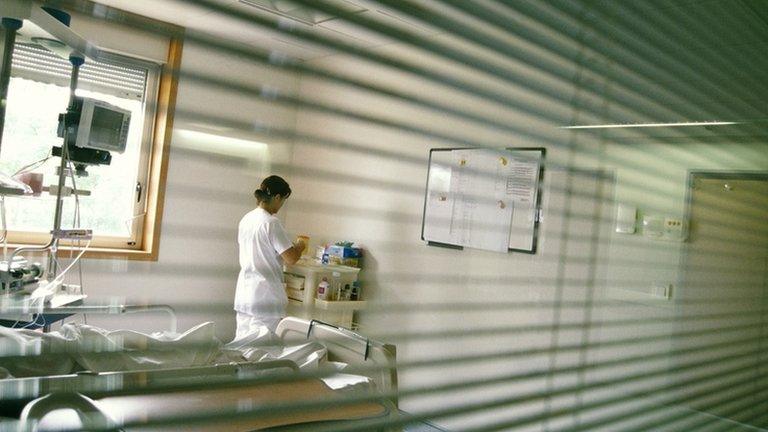
- Published7 February 2013
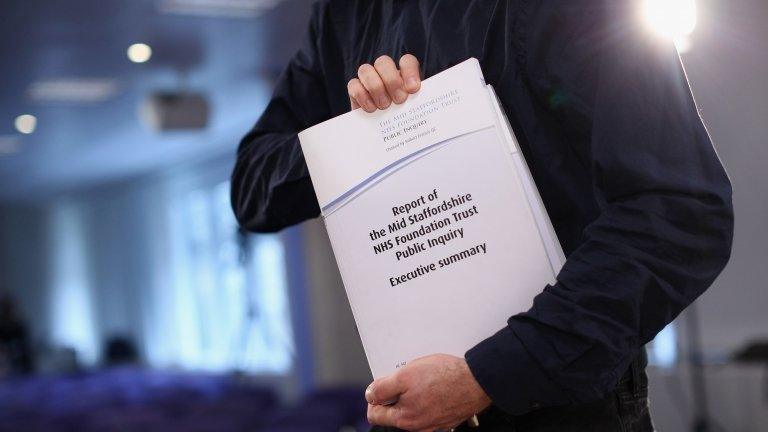
- Published16 March 2013
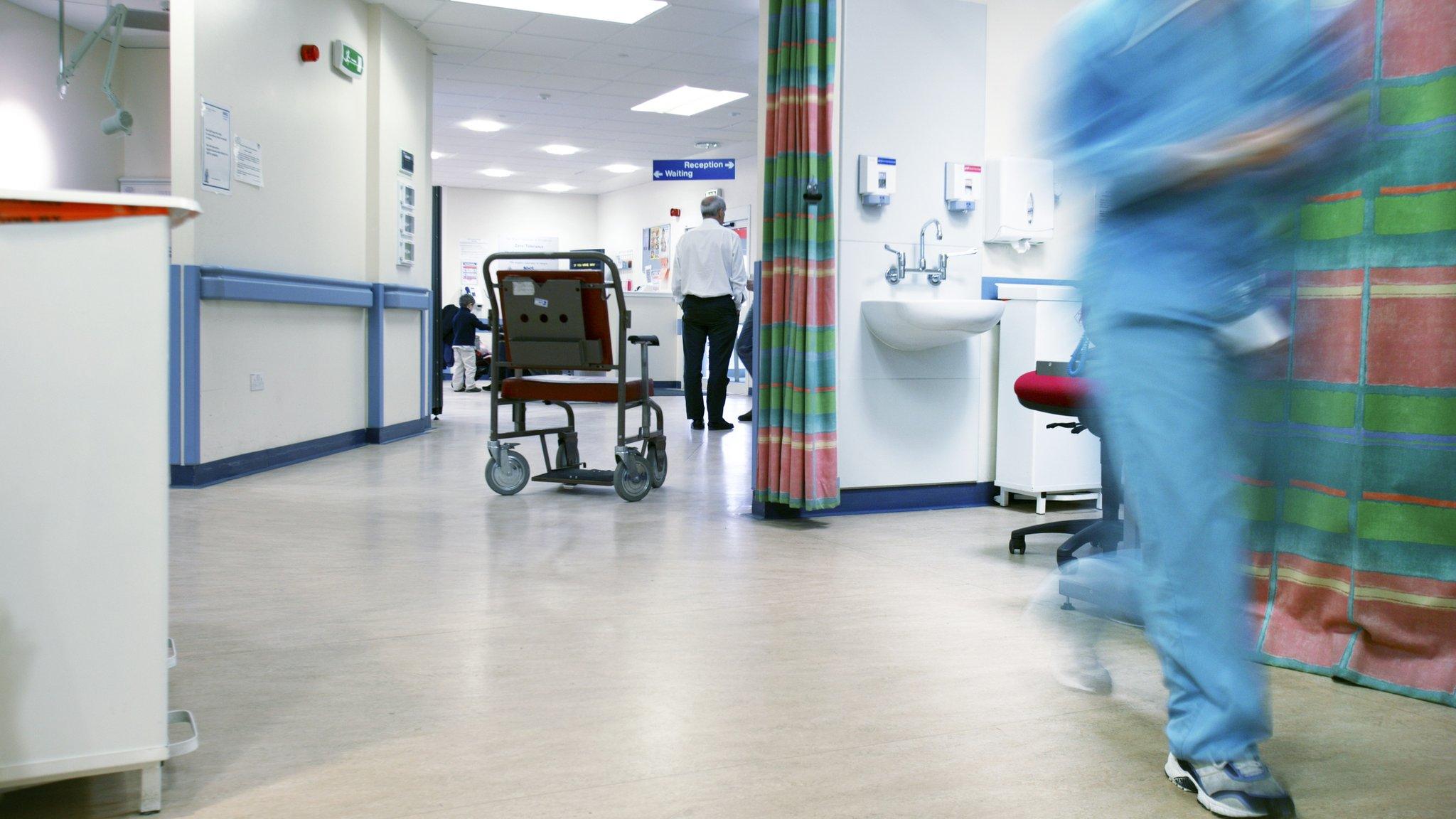
- Published12 March 2013
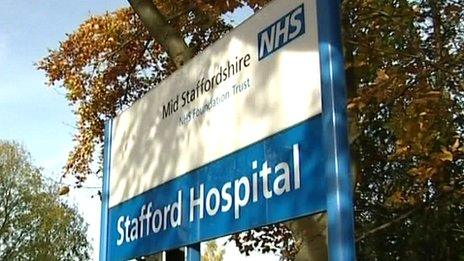
- Published6 February 2013
.gif)